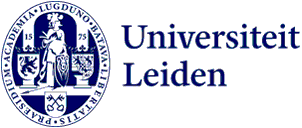
Whispering out loud
Whispp, a Leiden-based speech technology start-up, is developing an app to help people who stutter express themselves more freely. Among those working together with Joris Castermans and his team at Whispp, are researchers and students from the Leiden University Centre for Linguistics (LUCL).
Three years ago, things suddenly fell into place for Joris Castermans. Having worked as an industrial designer and innovation advisor for various clients, he was ready to start his own business. Castermans had previously struggled with stuttering as a child and young adult and knew first-hand of the impact it could have. ‘Although I’ve become more confident over the years, I still stutter when I’m stressed or nervous,’ he says.
After reading up on stuttering and speaking to researchers and experts in the field, Castermans came up with the idea for Whispp. ‘I was very interested in the positive effects whispering seems to have on the degree of stuttering,’ he explains. In his hometown Leiden he set up shop at PLNT, the Leiden Centre for innovation and entrepreneurship. ‘At PLNT, we are at the heart of the whole innovation ecosystem, over the last 3 years the benefits this has brought us are enormous!’
Using Artificial Intelligence (AI)
The prototype currently being developed uses AI speech technology to convert whispered speech into the speaker’s own voice. ‘The idea is that by using the Whispp app I could whisper something to you, and you would actually hear my normal voice, without any time lag,’ Castermans explains.
Whispp was originally intended to be used to make phone calls. But as so many people have had to work from home this past year due to COVID restrictions, the team is now further developing it so it can also be used to make video calls.
Whispp as a tool
Castermans is eager to point out that the goal is not fluency of speech but to create a tool so that people who have a severe stutter are able to express themselves in the way that they want to. ‘Not all people who stutter are negatively affected by this. But there is a group of people who do experience many negative consequences of stuttering. Whispp is designed to be a tool for these people.’
In a position paper, Castermans and his team have outlined exactly what this app is all about and what it is not. In his own words: ‘We hope to make a positive contribution to severely stuttering adults by making some speaking situations a little easier and more fun’.
Working together
Currently, the team is in the process of collecting audio data for training the AI model. Linguistics students at LUCL are validating this data to make sure whispered voices coincide with the spoken voices. LUCL researchers are also involved in this process. ‘Willemijn Heeren was one of the first people I spoke to regarding whispering and speech as well as Jos Pascilly,’ he recalls. ‘We value independent and sound research. That is why our partnerships with Leiden University, NeLL (National e-Health Living Lab), Radboud University and University of Amsterdam are so important to us. We also recently started a collaboration with the Dutch Cancer Institute (NKI) and LUMC to research the employability of Whispp for people with voice disorders.’

Call to action
A 3-month pilot study will take place starting from September with around 250 people testing the app. ‘If you stutter severely yourself and you are interested in participating in the pilot, please fill out this survey. When you have a voice disorder but you can still whisper with a ‘regular’ sound and good articulation, please contact us via our website’ says Castermans.
During the coming weeks, the Whispp team will be making voice and whisper recordings in the phonetics lab at Leiden University. ‘We are also looking for native speakers of Dutch, English, Spanish, French and German to lend their voices for these sessions. Please register here if you are a native speaker of one of these languages and are flawless at reading out loud.’
And finally, Castermans is always on the lookout for new sources of finance: ‘We hope to attract investors who see the potential benefits of this tool for people around the world. Depending on financing, we aim to launch the app in the summer of 2022. So join us!’
Whispp partners: NeLL (National e-Health Living Lab), Provincie Zuid Holland, Cor Wit fonds, Leiden University Centre for Linguistics, Radboud University and the University of Amsterdam.
Whispp website